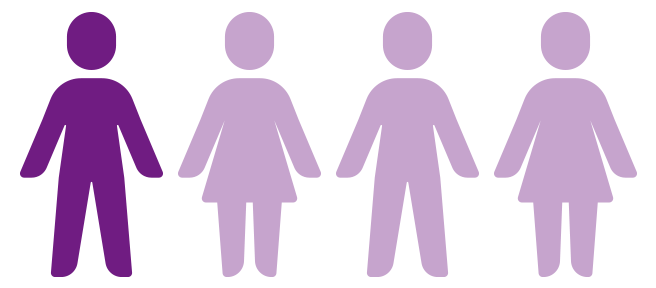Building mental wellbeing
“It absolutely never crossed my mind that I would go and speak to a GP about feeling anxious or depressed. Usually with a GP I would only ever go there for physical issues.”
—
100 Conversations
In England, one in four people will experience a mental health problem each year. One in six will experience a common mental health problem, like anxiety or depression, in any given week. The impact of the COVID-19 pandemic and uncertainties tied to the increasing cost of living could also see more people experiencing mental distress and ill
health. We have high levels of hospital admissions for self-harm in 15-24 year-olds and growing numbers of those diagnosed with autism experiencing mental ill health.
In Dorset, people experiencing mental health problems may seek help through care settings like their GP surgery, local emergency department and/or local community health team. However, it can be confusing to know when and where to seek help, which can lead to involvement by the police or social services if things escalate, or for people to simply suffer in silence.
By making mental health everyone’s business, Dorset ICS wants to make sure our workforce is equipped with the skills to ensure people experiencing mental ill health have access to the right level of support at the right time, and know what services are available to them.
Over recent years, we’ve been working to improve support for people in mental health crisis. Although we have been working on adult mental health crisis, we are still a long way away from getting this right for children and young people.
We want to place more emphasis on prevention and put local communities at the heart of what we do. We’d like to make improvements within community mental health support.
We will continue to work with the community and voluntary sector and others at a neighbourhood level to build community-based buildings. We will focus on the needs of the whole person and not just their diagnosis, giving people more control over their care and recovery.

The Light on campaign was set up by a group of like-minded Dorset business leaders to improve men’s mental health and wellbeing. By working creatively and collaboratively with businesses, public services and charities, the team are building a community where people can talk more openly about mental health. Tragically, suicide is the biggest killer of men under 45, but Light on is increasing knowledge and understanding with the aim of changing that.
The major highlight of Light on is the unique willingness and drive of different organisations to unite under one brand’s vision to tackle mental health in Dorset. Businesses, charities, prominent individuals, local authorities, NHS services and communities are working together to amplify messaging, share best practices and, most importantly, take a united position on changing the norm around mental wellbeing.
“Over the years, I’ve supported Dorset Mind and other charities due to my experiences with mental ill health and, sadly, losing friends to suicide. What became even more apparent during the pandemic was how many people were suffering in silence.
“Light on is built on the fundamental principle that we can improve people’s mental health by simply talking with one another. Light on aims to create a community in Dorset where people feel confident talking and supporting better mental health and tackling the stigma around mental ill health.
“In May 2022, we launched our Business Wellbeing Summit, bringing together Dorset organisations from key sectors. Eighty-four organisations attended, pledging their support for a universal workplace wellbeing standard across the county and becoming our first-year adopters of the Light on Workplace Wellbeing guidelines.
“In 2023 we will launch our champions programme, with thirty-five people across Dorset becoming our ambassadors, sharing our ambitions across their communities. These incredible people showing their strength to create a new normal by talking about mental health.”
Andy Coleman – Founder, Light on
Jon’s story
Jon Bartlett moved to North Dorset recently and was surprised how easy it was to access the mental health support that he needed.

“Whilst I was looking forward to moving back to my home county, I was also nervous. What would the care for my mental health be like? It had taken a long time to get a good treatment regime in my old county – one which, like Dorset, was heavily skewed by a large urban area at one end and rural districts elsewhere.
“I registered at my new GP and found that the doctors had seen my records and booked time to speak with me and welcome me to their surgery, whilst checking what specialist support I might need for my mental health. I was anxious as I spoke to a new GP but they set me at my ease quickly (often tricky by phone) and outlined what they would do next and where I should look to find some community supports. By the end of the same day I had a call from the community mental health team and a couple of days later the social prescribing team had called to connect me up with local peer support groups and various activities.
“I was genuinely surprised how many groups/events were going on. There seemed to be something for everyone and certainly plenty of people ready and willing to help. We hear all the time about waiting lists and delays in mental health services and those things are undoubtedly still an issue, but the service is full of staff who care, and there are plenty of people in the community to help you on a day to day basis.”


